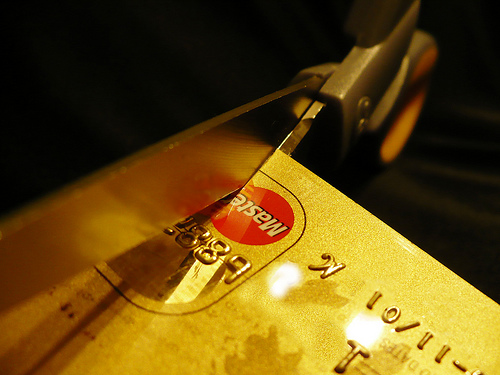
Debt = Risk
The economy for the last 20 years has grown almost entirely on debt. Real wages haven’t increased but consumption has double and tippled. We live in bigger homes, drive newer cars, and have more expensive technology than our parents did. The recent boom in housing has dumped billions of dollars of new home equity and home sales money into the economy. This money was created through new loans and new debt. Consumers have maxed out there credit cards, home equity loans, and are struggling to make ends meet as gas and food prices increase.
Debt is marketed vigorously to young, old, and everyone in between. Debt is sold as the end-all solution for any of life’s problems. Sometimes debt is sold as a tool to ‘leverage’ other people’s money to your own ends. This very popular in the get-rich-quick real estate programs. While there is power in leveraging it can work in the opposite direction, and frequently does. Remember the Great Depression? It was made many times worse by the use of borrowing on margin accounts. Margin accounts are used to borrow from a broker to buy stock. When the market went up everybody made money. When the market started to slide downward everyone panicked. The margin accounts left many people over-leveraged and debt quickly turned against them. The longterm results will disprove the theory of leveraging and using excess debt to build wealth.
No matter which way you slice it debt equals risk. Companies and individuals with a lot of debt are not considered financially healthy. Investors and lenders won’t tolerate the high-risk lifestyle and penalize those companies and individuals with very high lending rates. Debt is a guaranteed loser and those that claim debt as a valuable tool can look at the longterm record of all the failed companies and individuals as proof. Longterm prosperity can’t be built out of excessive debt.
Surely, some debt can be good. It wouldn’t be right to say debt is good, but justified. Debt is justified when these criteria are met: It can consistently make more than the cost of debt. The asset doesn’t depreciate or stagnate. The asset appreciates with time.
(positive growth of asset) – (cost of interest on debt) = Asset(+) or a Liability(-)
Most justified debt include education and homes. Debts that are not justified are: consumer debt, automobiles, and vacations. Those things aren’t bad per say but should be bought with cash, not debt.


